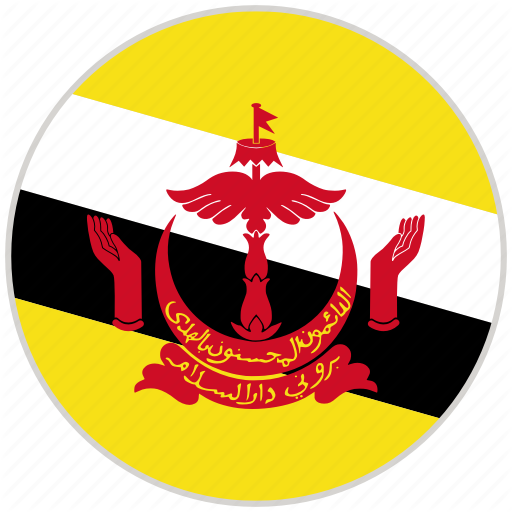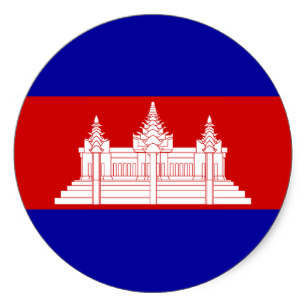Network of East Asian Think-tanks (NEAT)
Memorandum No. 11
I. Introduction
The Network of East Asian Think-Tanks (NEAT) held its 21st Country Coordinators Meeting (CCM) and 12th Annual Conference (AC) in Phnom Penh, Cambodia on 29-30 September 2014. Attending these two events were the representatives of ASEAN Plus Three (APT) countries.
NEAT reaffirms that the goal of community building in East Asia is to promote the welfare and well-being of its people by realising the East Asian Vision of Peace, Prosperity and Progress. In order to promote an East Asia that is peaceful, community building must be based on universal values, including good governance, the rule of law, democracy, human rights and international lawand norms. East Asian countries should promote these values as common goals.
II. Recommendations
NEAT respectfully submits recommendations in the following four areas under its Working Groups for the consideration of the ASEAN Plus Three Summit (APT):
A. Accelerating the Regional Comprehensive Economic Partnership (RCEP) Process through Strengthening the APT Cooperation
East Asia is in urgent need of a region-wide trade agreement. The RCEP initiated by ASEAN has great potential to meet this need and hence shall be accelerated. The success of the RCEP will help the region build a highly liberalised and larger common market, upgrade regional production network for greater competitiveness, enhance connectivity and narrow developmentgap.
1. Substantiate ASEAN centrality: As ASEAN centrality is key to the progress of the RCEP negotiations, ASEAN shall remain in the driving seat in carrying out the RCEP blueprint.
-
ASEAN should be committed to the set goals for the RCEP negotiations while allowing enough flexibility for the least-developed ASEAN Member States (AMSs).
-
The Plus Three countries should provide strong support for the proposals put forward by ASEAN based on the RCEP Guiding Principles.The Plus Three countries need to contribute to the realisation of the AEC and capacity building with technical cooperation in the leastdeveloped AMSs. The proposal for establishing an Asian Infrastructure Investment Bank should be encouraged to offer financial support for infrastructure connectivity in the region.
2. Advance parallel FTA negotiations: Efforts should be made to conclude effective trade agreements in the region, such as the China-Japan-ROK FTA and the China-ROK FTA, which will help accelerate the RCEP process. The RCEP and the TPP should complement each other. Developing countries that cannot yet reach the high threshold of the TPP membership may achieve economic development first under the RCEP.
3. Take an innovative approach: To accommodate the needs of member countries with different levels of development, the RCEP negotiations should be conducted in a sequential approach with flexible membership and an explicit schedule.
-
With ASEAN centrality in place, an“RCEP minus X” approach should be adopted in the negotiations. Proposals put forward by ASEAN shall go to effect to those parties who have adopted them. The noncommitted parties will enjoy the benefits when they are ready to adoptand implement them. Thus, some of the RCEP goals can be achievedfirst among the committed parties.
-
Parties are encouraged to follow the ASEAN-proposed schedule and sequential steps to conclude the negotiations.
4. Introduce “Pilot Programs”: “Pilot Programs” shall be introduced in areas where consensus can be reached more easily so that committed parties can enjoy benefits as soon as possible and facilitate the follow-ups.
Trade facilitation can be a priority area for “Pilot Programs,” including harmonization of ROOs, facilitation of customs procedures, and FTA utilization. In service trade liberalization, “Pilot Programs” can be carried out first in tourism. Pilot Programs” can also be introduced into economic and technical cooperation on finance, E-commerce, infrastructure connectivity, regional value chains, capacity building, new energy and green industry, etc.
B. Enhancing People to People Connectivity - Education, Tourism and Cultural Exchange
NEAT believes that education, tourism and culture exchange are very important elements for the formation of the APT Community. They will further promote coexistence in a multicultural society, sustainable development, and social resilience, focusing on the important role of individual persons.
- Establish a forum or a platform with multilayered structure and various learning styles; while strengthening education network scheme like ASEAN University Network (AUN) and ASEAN International Mobility for Students (AIMS) program.
- Enhance existing regional meeting in order to make an inter-regional academic networking beyond APT framework with some key activities such as promoting teachers, staffs and researchers’ mobility.
- Establish a forum or a platform where Asian academic standards beyond borders can be discussed embracing cultural diversity and tradition of harmony in East Asia such as the project of ASEAN Research Cluster through internet by Southeast Asian Ministers of Education Organisation-Regional Centre for Higher Education and Development (SEAMEORIHED).
- Formulate a regional language cooperation system in ASEAN +3 framework recognizing the efficacy and efficiency of English as a communication tool for Asian regional cooperation.
- Take a transnational approach to choose topics of a “learning commons” to be shared beyond national boundaries. It is important to consider significance of Education for Sustainable Development (ESD) as a key concept to be discussed.
- Look for concrete ways of solving the common issues in Asia. In particular, it is important for us to use technology to respond to social challenges while considering Asia’s cultural diversity.
- Encourage sustainable and responsible tourism such as eco-tourism, volunteer tourism and green tourism.
- Promote APT cooperation to preserve intangible cultural assets and heritage.
- NEAT respectfully submits recommendations in the following three areas for the consideration of the APT:
C. The Governance of Extractive Industries in East Asia
There is a need for APT countries to make sure that the management of the extraction of natural resources is conducted in a sustainable manner. Without good governance in extractive industries in APT countries, the future of economic growth in the region is severely threatened. The management of extractive industries in the region has to balance the need for today’s development and the need of future generations. Actions need to be taken at national and regional levels for establishing good governance in extractive industries in the region. Below are key recommendations to promote cooperation on extractive industries among the APT Countries:
- Create more opportunities and initiate efforts at regional level to facilitate exchanges of information, capacities, technology, experiences and resources in order to develop better governance in extractive industries.
- Take into consideration the work of other successful countries and international bodies by tapping the knowledge, experiences, and best practices in the area of extractive industries.
- Develop more consolidated information based on the governance and on the situation of the extractive industries in APT countries.
- Facilitate more quality and balanced investments that take into account social and environmental considerations.
- Implement more corporate social responsibility projects. It is important to promote CSR projects on a regular basis that can help the development of local communities.
- Consider the international standard of Environmental Impact Assessment (EIA) and incorporate it to their domestic governance on extractive industries.
- Promote a new perspective in natural resource management to the multinational companies operated in the region. It should cover the enormous challenges in natural resource extraction both in national and regional level.
- Enhance the oversight and monitoring activity about the financial disclosure of the company and considering enforcement as criterion to evaluate the efficiency of the company.
- Promote more bilateral and multilateral cooperation among APT countries on the governance of extractive industries.
- Support legal reforms on the governance of extractive industries in APT countries.
- Develop a regional framework for cooperation in the governance of extractive industries to ensure the optimum result of abovementioned initiatives.
D. Urbanization; Challenges and Opportunities for Regional Collaboration
The governments of the APT countries play an important role in managing the urbanization process to deliver improved standards of living to their people. The APT countries underscore the importance of having good urban governance and planning to bring about cities that are socially diverse, culturally vibrant and environmentally livable, an outcome which population around the world increasingly aspire to. Below are the key recommendations to promote APT cooperation on urbanization.
- Develop a strong urban economy in the APT countries to provide employment and a viable taxation/revenue base. Having a dynamic economy and sound public finance will make it possible for social and environmental programs to enhance the quality of life in a city.
- Enhance the Plus Three countries collaboration on the ASEAN Initiative on Environmentally Sustainable Cities (AIESC) to promote sharing of experiences, best practices and implementation of initiatives/programs. Enhance the Plus Three countries collaboration on the support and implementation of the AIESC’s Key Indicators for Clean Air, Clean Land and Clean Water.
- Create an APT Urban Forum to share knowledge and experience on urbanization challenges, policies and best practices.
- Work closely with international organizations such as ADB, UN-ESCAP and UN-Habitat to initiate and implement national and local urbanization initiatives/programs. In addition, APT countries could refer to the UNHabitat’s Urban Indicator Program and Best Practices Program to improve their own urbanization process.
- Empower and train local government officials to play a bigger role in urbanization processes/programs.
- Adopt an open and inclusive approach to engage and involve relevant stakeholders to facilitate the urbanization process.
- Publicize best practices and successful examples of urbanization in the APT countries.
- Seek funding from financial institutions such as the ADB and other sources to meet the infrastructure needs of the APT countries.
- Promote social programs and policies to deal with slums and urban poverty.











.png)



.png)




